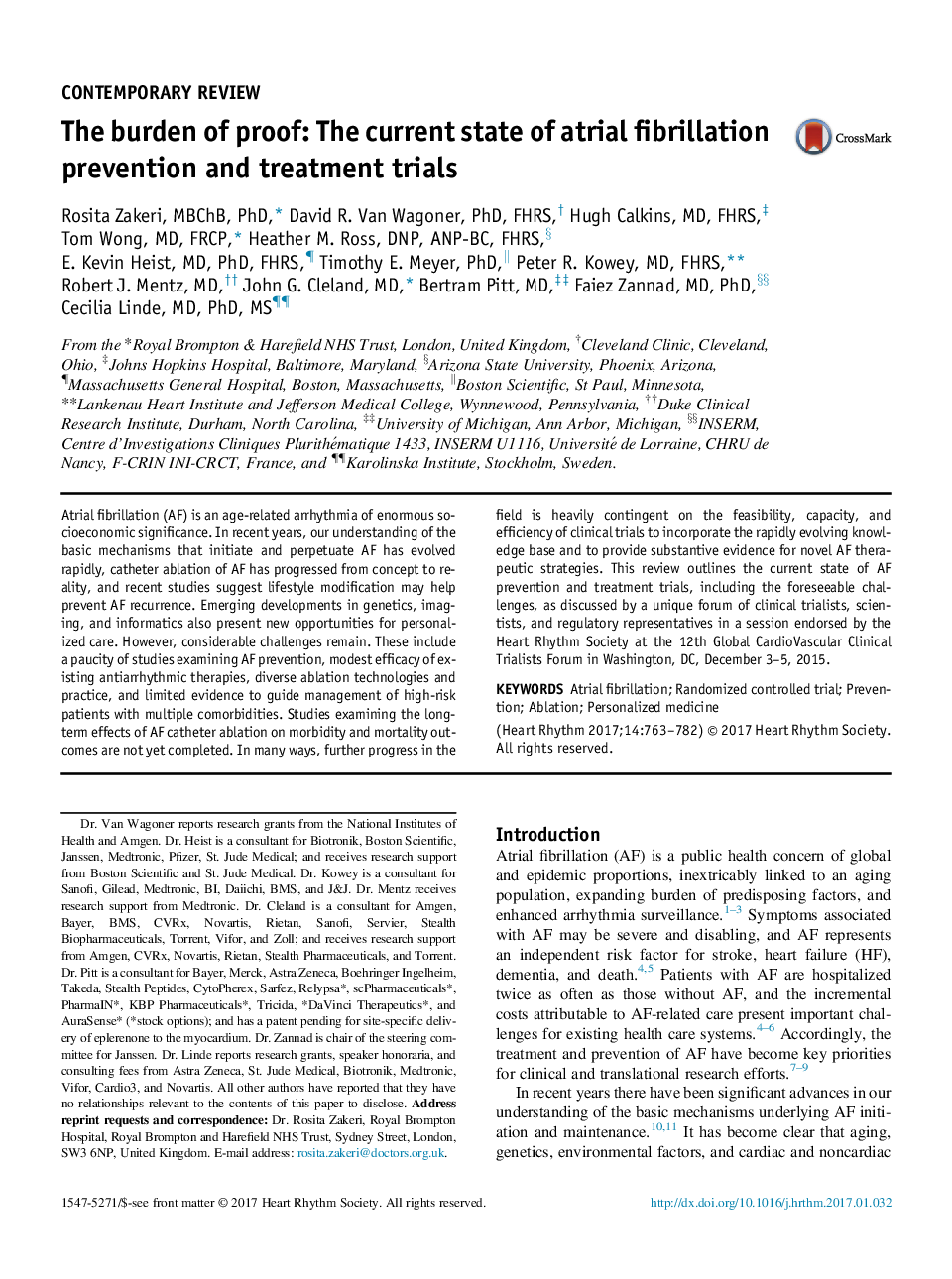| Article ID | Journal | Published Year | Pages | File Type |
|---|---|---|---|---|
| 5603445 | Heart Rhythm | 2017 | 20 Pages |
Abstract
Atrial fibrillation (AF) is an age-related arrhythmia of enormous socioeconomic significance. In recent years, our understanding of the basic mechanisms that initiate and perpetuate AF has evolved rapidly, catheter ablation of AF has progressed from concept to reality, and recent studies suggest lifestyle modification may help prevent AF recurrence. Emerging developments in genetics, imaging, and informatics also present new opportunities for personalized care. However, considerable challenges remain. These include a paucity of studies examining AF prevention, modest efficacy of existing antiarrhythmic therapies, diverse ablation technologies and practice, and limited evidence to guide management of high-risk patients with multiple comorbidities. Studies examining the long-term effects of AF catheter ablation on morbidity and mortality outcomes are not yet completed. In many ways, further progress in the field is heavily contingent on the feasibility, capacity, and efficiency of clinical trials to incorporate the rapidly evolving knowledge base and to provide substantive evidence for novel AF therapeutic strategies. This review outlines the current state of AF prevention and treatment trials, including the foreseeable challenges, as discussed by a unique forum of clinical trialists, scientists, and regulatory representatives in a session endorsed by the Heart Rhythm Society at the 12th Global CardioVascular Clinical Trialists Forum in Washington, DC, December 3-5, 2015.
Related Topics
Health Sciences
Medicine and Dentistry
Cardiology and Cardiovascular Medicine
Authors
Rosita MBChB, PhD, David R. PhD, FHRS, Hugh MD, FHRS, Tom MD, FRCP, Heather M. DNP, ANP-BC, FHRS, E. Kevin MD, PhD, FHRS, Timothy E. PhD, Peter R. MD, FHRS, Robert J. MD, John G. MD, Bertram MD, Faiez MD, PhD, Cecilia MD, PhD, MS,
